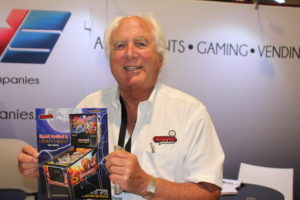Following our recent newsletter item about pinball machines being banned in Los Angeles in 1939, Stern Pinball President Gary Stern shared some stories about pinball bans – and their reversals – around the country:
Around that time, pinball was banned in LA, New York City, Chicago. See Pop Culture Panics by Karen Sternheimer, (Routledge, New York City, 2015) page 66.
The most important and first event in the reversal of these pinball bans was the 1974 California Supreme Court case, Cossack v. City of Los Angeles, 11 Cal.3rd 726, wherein the Court ruled pinball is a game of skill. law.justia.com/cases/california/supreme-court/3d/11/726.html; scocal.stanford.edu/opinion/cossack-v-city-los-angeles-27830
In determining pinball is skill based, the court noted the 1948 addition of flippers (Gottlieb’s Humpty Dumpty). Although this case is not legal precedent in other jurisdictions, it has been helpful to me in explaining pinball is skill based to contra laws elsewhere.
A few years later Roger Sharpe played pinball for a New York City Council committee, where he made the shot he called to demonstrate pinball is a game of skill. Skill game stories like this contribute to the popularity of pinball, just as “The Hustler” and “Color of Money” created interest in pool. However, as reported in the New York Times page 33, May 14, 1976, the Council vote to eliminate the ban was not because pinball was demonstrated to be a game of skill. The full Council voted 30-6 to end the ban “as a revenue-producing measure that [was expected to]bring in $1.5 million a year” through licensing. Economics, not skill, overturned the ban. Not surprising in politics.
Chicago’s Alderman Mell (father-in-law to Governor Blagojevich’s, elected many years later) realized that Bally’s and Williams’ factories were in his ward. Gottlieb was also located in Chicago. Mell approached Bally and Williams. The 3 pinball companies engaged the Arvey law firm to work with the Chicago City Council to remove the pinball ban. I have to imagine that the number of jobs at these factories influenced the Council. Again in politics, economics is demonstrated to be a moving force.

